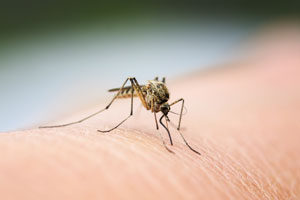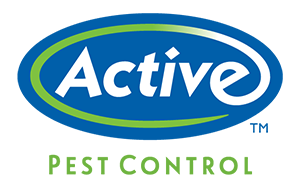 Spring and summer in Georgia come with a lot to be excited about. However, the warm weather and sunshine following rainfall lead to all kinds of pest problems in our region. It’s important to be able to stop pests from finding food sources, shelter, and breeding grounds in your backyard, because without any effort put into pest prevention, your background will be overrun with pests for most of the year. If you’re wondering how you can pest-proof your backyard, read on for advice from our expert exterminators at Active Pest Control!
Spring and summer in Georgia come with a lot to be excited about. However, the warm weather and sunshine following rainfall lead to all kinds of pest problems in our region. It’s important to be able to stop pests from finding food sources, shelter, and breeding grounds in your backyard, because without any effort put into pest prevention, your background will be overrun with pests for most of the year. If you’re wondering how you can pest-proof your backyard, read on for advice from our expert exterminators at Active Pest Control!
10 Tips to Make Your Backyard Pest-Free
Our climate allows for all kinds of pests to thrive throughout the year, so it’s important to have a pest prevention plan that accounts for all kinds of infestations. Here are our top 10 pest prevention tips for Georgia residents:
- Mow the lawn often: Mowing once a week can prevent overgrowth that creates excess standing water pooling and ample insect hiding places.
- Trim your plants: Make sure your trees, bushes, and shrubs aren’t overgrown. This can lead to shaded hiding places that are particularly attractive to mosquitoes, ticks, fleas, and more.
- Get rid of yard waste: Piles of yard waste can provide shelters that lead to all kinds of pest infestations, from ants all the way up to rodents and wildlife.
- Clear out standing water: Mosquitoes breed in pools of standing water, no matter how small. Make sure to pour it out or cover it when you find rainwater pooling in gutters, planters, tarps, buckets, your lawn, or elsewhere.
- Use garden nets: Garden netting can protect the plants that would otherwise attract all kinds of insects and wildlife.
- Dethatch your lawn: A thin layer of thatch is helpful for your lawn’s temperature regulation, but too much of it can suffocate your lawn and lead to all kinds of pest problems. Dethatch your lawn and use a nitrogen fertilizer to prevent excess buildup.
- Water your lawn carefully: Overwatering and underwatering can both lead to different kinds of pest problems, so it’s important to know exactly how much water your lawn needs. Setting up an irrigation system or sprinkler system will regulate this quantity for you.
- Store firewood up and away: Firewood laying around by the side of your home can quickly lead to a devastating termite infestation. To prevent this from happening, store your firewood off of the ground, away from your home, and covered if possible.
- Keep bins closed: Pests as small as wasps and as big as raccoons love to forage in our trash cans for food. Seal them if possible, but definitely keep them as far away from your yard and home as possible.
- Hire an exterminator: A professional pest control technician can assess your yard for active vulnerabilities that could lead to pest infestations.
Pest Control for Your Backyard in Georgia
If you want to feel confident that your yard won’t fall victim to pest infestations this spring and summer, reach out to your local pest control company. At Active Pest Control, our highly trained technicians are well-versed in control and prevention strategies for the many insects, arachnids, and wild animals living in Georgia. We can set up a plan to keep your yard pest-free* year-round. Contact us today for a free quote!

 With summer winding down, you’re likely wanting to spend as much time outdoors as possible. Whether you are hosting a backyard barbecue or reading out on your patio at night, the last thing you want to deal with is a pest problem. Mosquitoes, ticks, flies, lawn pests, and wasps are just a few of the many pests that can become quite a nuisance. At Active Pest Control, we know you want to enjoy your time spent in your outdoor living spaces to be pest-free*, which is why we’re here to provide you with our top tips for pest-free* outdoor living in your Atlanta area home.
With summer winding down, you’re likely wanting to spend as much time outdoors as possible. Whether you are hosting a backyard barbecue or reading out on your patio at night, the last thing you want to deal with is a pest problem. Mosquitoes, ticks, flies, lawn pests, and wasps are just a few of the many pests that can become quite a nuisance. At Active Pest Control, we know you want to enjoy your time spent in your outdoor living spaces to be pest-free*, which is why we’re here to provide you with our top tips for pest-free* outdoor living in your Atlanta area home. Here at Active Pest Control, we are closely monitoring the Coronavirus Disease 2019 (COVID-19) situation and continue to focus on our commitment to protecting our communities. In the midst of this pandemic, there are endless questions surrounding the nature of the virus, including how it is spread. Data and information is changing daily, but to date, there is no evidence or proof to suggest that
Here at Active Pest Control, we are closely monitoring the Coronavirus Disease 2019 (COVID-19) situation and continue to focus on our commitment to protecting our communities. In the midst of this pandemic, there are endless questions surrounding the nature of the virus, including how it is spread. Data and information is changing daily, but to date, there is no evidence or proof to suggest that 
